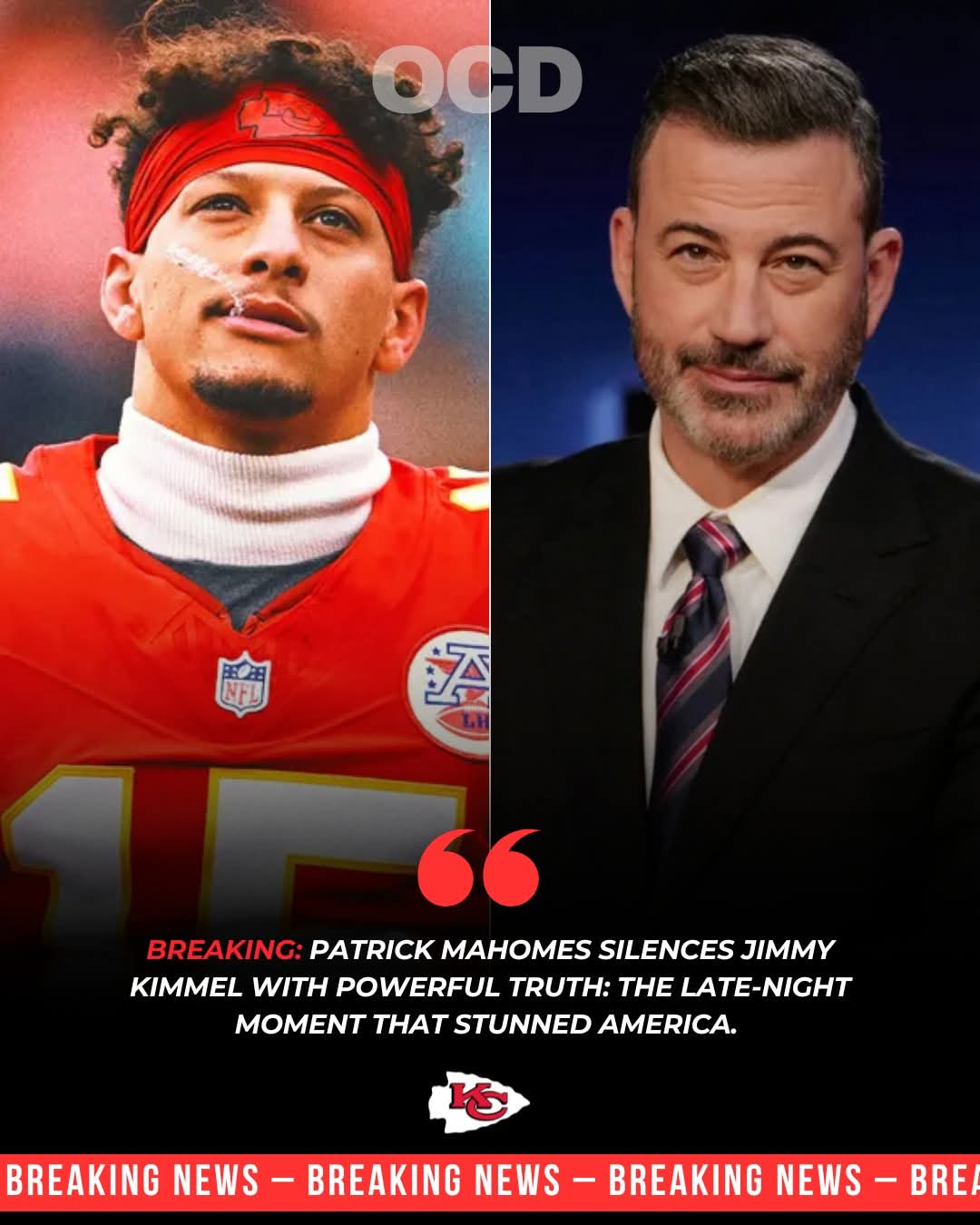CELEBRITY
It turned into a live moment of truth no one could have scripted. The tension rose when Kimmel smirked and said, “Patrick, it’s easy to talk about leadership and discipline when you’ve never had to carry the real weight of the world.”

Patrick Mahomes looked up, calm but unshaken, his eyes steady under the studio lights. His voice was low — but it carried.
“The real weight of the world? Jimmy, I was a kid from Tyler, Texas, who was told I was too raw, too unconventional to make it.
I studied tape till sunrise, threw passes into the dark when nobody was watching. I learned every angle, every read, every failure the hard way. I’ve played through pain, through doubt, through people calling me overrated after one bad game.
I’ve seen what pressure is — it’s the fourth quarter when the crowd is roaring, the clock is dying, and your team looks at you like their season depends on what you do next. Don’t tell me I don’t understand pressure.”
The studio fell silent. The audience leaned forward, caught between tension and awe.
Kimmel chuckled awkwardly, trying to regain control:
“Oh, come on, Patrick. You’ve had a good run. Don’t act like you’re some kind of saint. You’re just another superstar quarterback talking about grit.”
That struck a nerve — but he didn’t raise his voice.
He simply straightened his posture, his tone deepening with quiet conviction.
“Grit?” he said softly. “Jimmy, grit isn’t about highlight reels or rings.
It’s what keeps you grinding when nobody’s watching — in high school gyms with fading lights, in the pros when your body’s screaming, and your mind’s telling you to quit. It’s showing up every day for your teammates, your family, your city — even when the world’s ready to move on.
That’s not ego. That’s commitment. And if that makes someone uncomfortable, maybe that says more about them than it does about me.”
The audience erupted — clapping, cheering, some even chanting his name.
Kimmel tried to talk over the noise, raising his voice:
“This is my show, Patrick! You don’t get to turn it into a locker-room pep talk!”
He smiled faintly, a mix of grace and fire.
“I’m not giving a pep talk, Jimmy,” he replied. “I’m reminding people that respect, preparation, and humility still matter — in football, on television, in life. Somewhere along the way, we started confusing sarcasm with strength.”
The crowd went wild — standing, applauding, the sound echoing across the studio.
He reached for his glass of water, set it down gently, and looked straight into the camera.
“This world’s got enough noise,” he said. “Maybe it’s time we start listening — and lifting each other up again.”
He stood, gave the audience a quick nod, and walked offstage — calm, composed, unapologetically Patrick Mahomes.
Behind him, the studio buzzed with emotion as the band eased into a soft groove, letting the moment breathe.
Within minutes, the clip hit social media. Millions of viewers flooded the internet, calling it “the most powerful moment in late-night TV history.”
Fans praised Mahomes for his authenticity and poise, saying he “didn’t argue — he elevated.”
Others admired how he turned confrontation into clarity — proof that leadership isn’t about words, but presence.
For Jimmy Kimmel, the night meant to mark his big comeback became something else entirely.
Instead, it became the night when Patrick Mahomes turned late-night television into a stage for accountability, respect, and the quiet fire that defines true champions.













